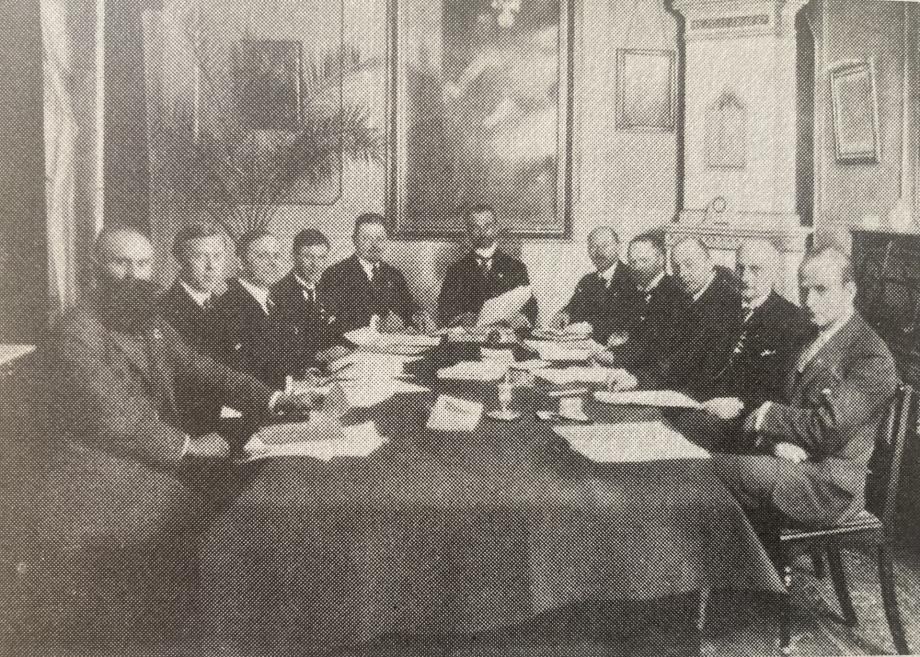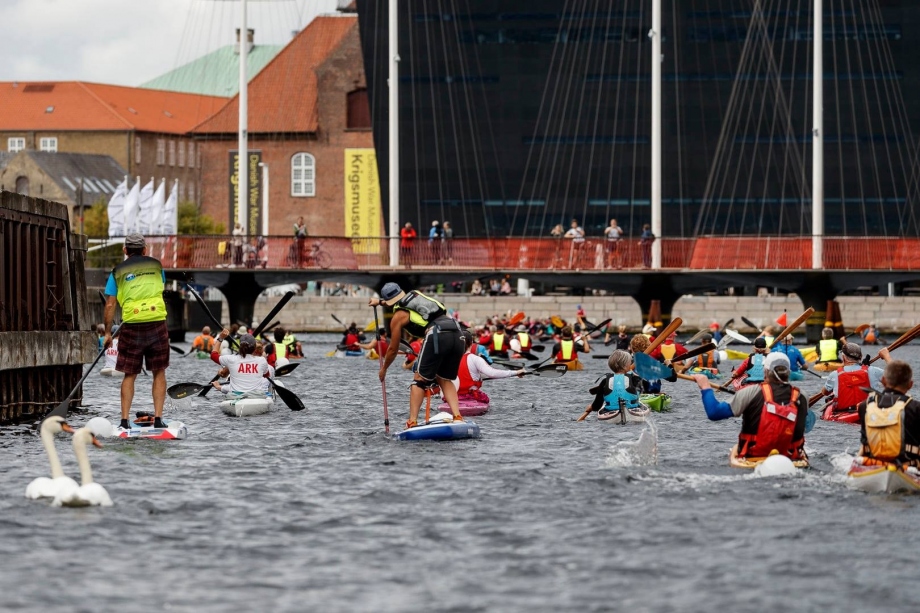Located close to Copenhagen’s famous Little Mermaid statue and overlooking the harbor stands the Langelinie Pavillonen.
This building is a popular venue that stages events including weddings and family gatherings throughout the year but unbeknown to many of its visitors is that it also holds a special place in the International Canoe Federation’s history.
On this day 100 years ago, the Danish Canoe Federation welcomed representatives from several national associations to the Langelinie Pavillonen.
The meeting was held with the aim of establishing an international paddling association after a set of statutes had been drafted by a working committee comprising members of the National Federations of Denmark, Germany, Austria and Sweden.
Paul Wulff and Soren Arfelt were among those that represented the Danish Canoe Federation on January 19, 1924 as they joined German, Austrian and Swedish delegates round a table at the Langelinie Pavillonen.
It was there where the Internationale Repräsentantenschaft Kanusport was formed before it was renamed as the International Canoe Federation 22 years later.

A plaque marking the creation of the global governing body for paddle sports is said to have once been in place only to disappear after the Langelinie Pavillonen was severely damaged during the Second World War.
Christian Jacobsen, Chief Executive and Secretary General of the Danish Canoe Federation, said he was not surprised Denmark was chosen to hold the ICF’s foundation meeting.
“At that time, big ferries would have been leaving for the whole world from that harbor so it’s a significant and historical area,” said Mr Jacobsen.
“Copenhagen was a lot smaller and that part of the city next to the Little Mermaid was probably considered a fashionable place to meet and there is the connection with the water.”
At the meeting, the purpose of the IRK was defined as follows:
- To form a link between the Canoeing Associations of the various countries.
- As far as possible, to organise international competitions in paddling and sailing, once a year, and alternately in the various countries.
- To promote and foster foreign touring through production of appropriate river guides, and through the provision of information on accommodation and places of interest.
- To introduce internationally recognised symbols for rivers, on maps in order to facilitate touring.
- To exchange information by making the various national publications on Canoeing mutually available: through the preparation of lectures and speakers, films and photographs, as well as through correspondence.
Regulations for the classes of racing kayaks, sailing canoes and Canadian canoes were also agreed along with rules for international races.

Wulff led the ICF from 1925 to 1928, taking over the reins from Germany’s Franz Reinicke who was the first President of the organization.
Harald Jespersen became the second Dane to take charge of the ICF when he held the position from 1950 to 1954.
As well as being one of the four founding members, Denmark has continued to play an important role in the evolution of the ICF having staged multiple World Championships in canoe sprint and canoe marathon.
“There is a feeling of pride, there is a feeling of a connection and there is a feeling of responsibility which is part of the reason why we still remain active in the decision making,” said Mr Jacobsen.
“We have a responsibility to our heritage to be involved in the development of canoeing.”
The Danish Canoe Federation celebrated its 100th anniversary in 2021 when it hosted the ICF Canoe Sprint and Paracanoe World Championships.
As part of the celebrations, an anniversary parade was organized which saw all types of canoes, kayaks and SUPs take to the canals of Copenhagen.
Paddlers also continue to use the waters by the Langelinie Pavillonen – a century after the ICF was born.
Related links




